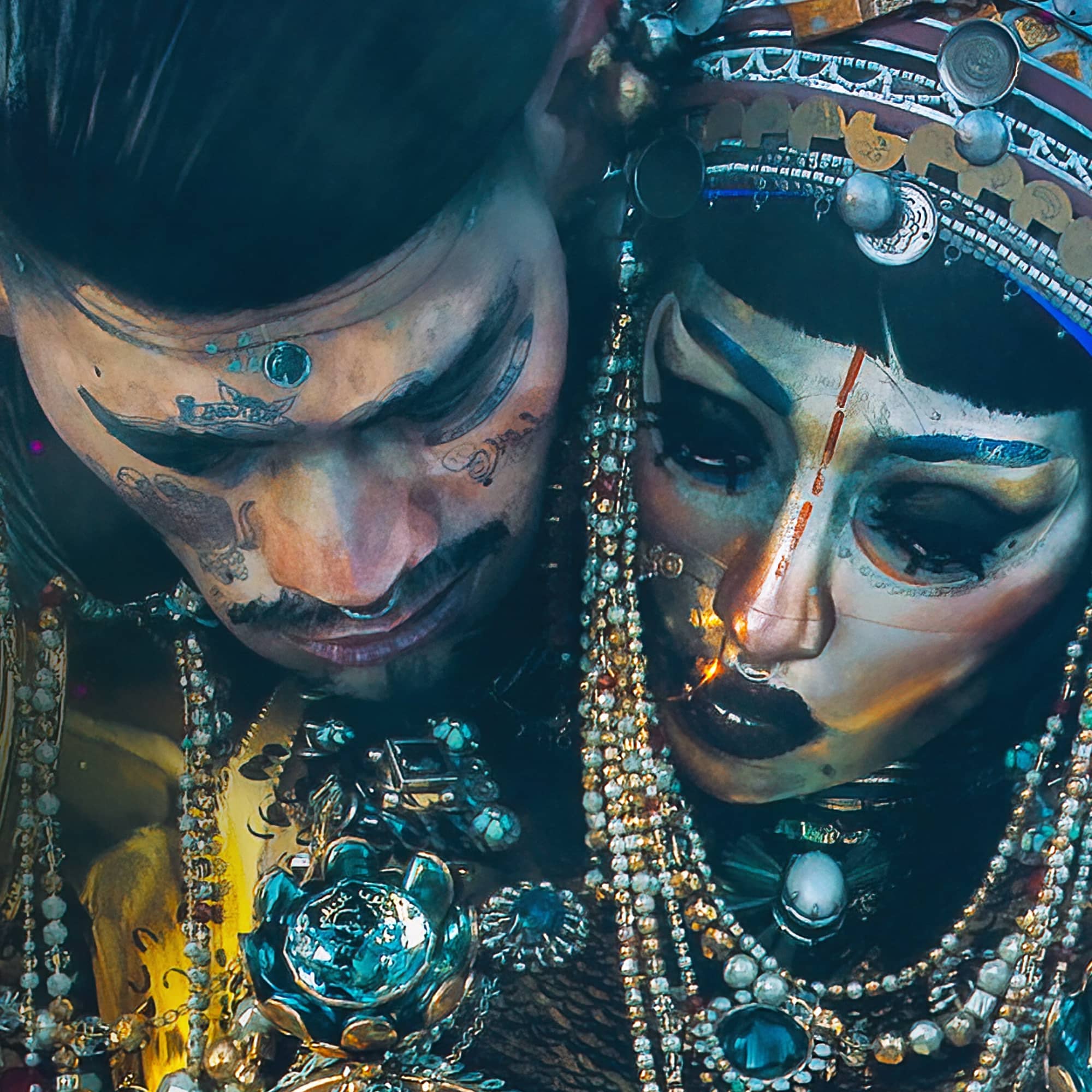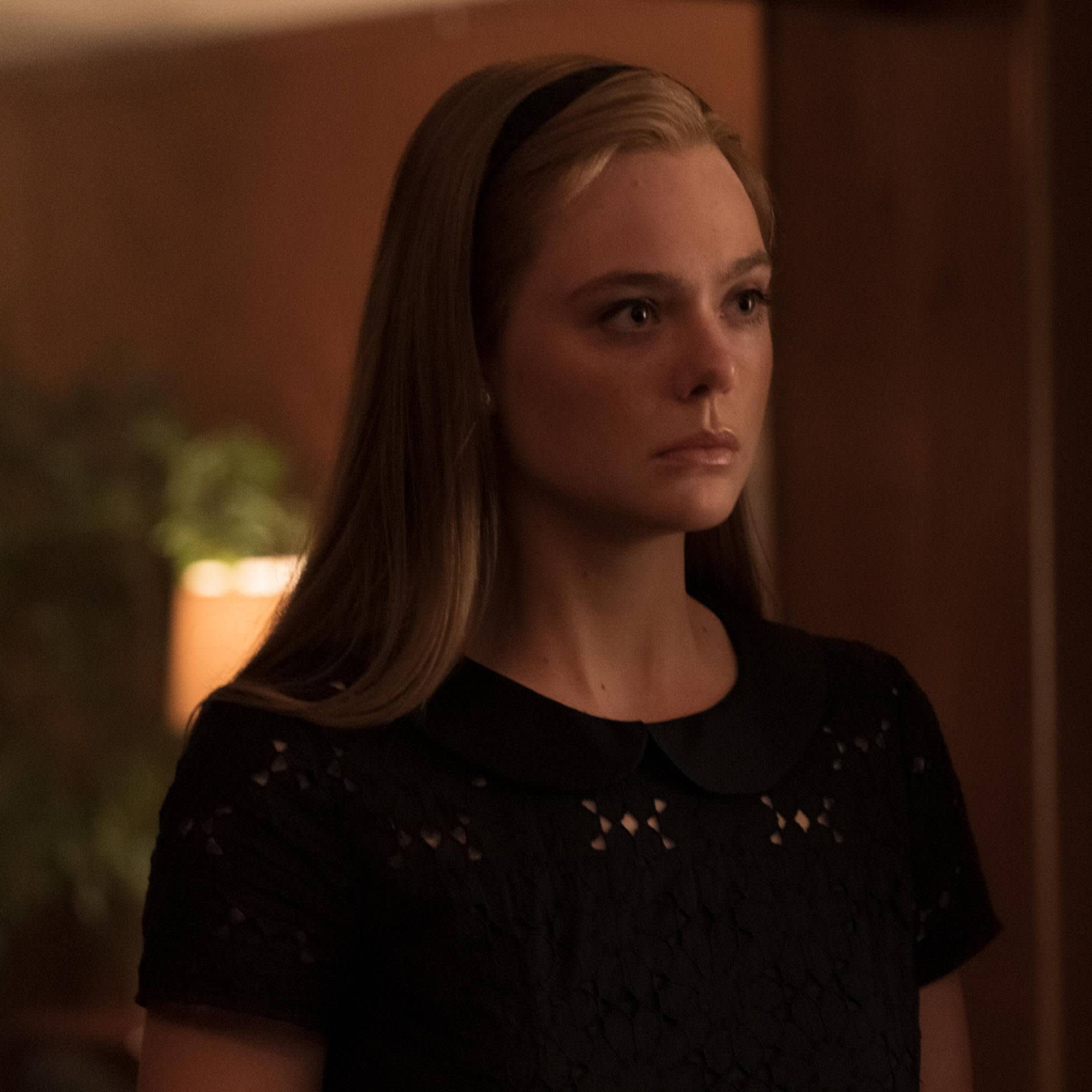
- POPSUGAR Australia
- Celebrity
- The “Jibaro” Episode of “Love, Death + Robots” Is Emmy-Nominated – but the Title Doesn’t Make Sense
The “Jibaro” Episode of “Love, Death + Robots” Is Emmy-Nominated – but the Title Doesn’t Make Sense

Netflix’s episode of “Love, Death + Robots” Vol. 3 titled “Jibaro” was recently nominated for an Emmy for outstanding short-form animated program. The short was directed by Spanish director Alberto Mielgo, who won an Oscar earlier this year for his short animated film “The Windshield Wiper.” For those unfamiliar with Netflix’s “Love, Death + Robots,” the series consists of a collection of animated shorts that all centre on three core themes: love, death, and robots. Sounds simple enough, right? But there’s a lot more abstraction, complexity, and depth than one would imagine. While the short was created with the intention to leave room for many different interpretations, one thing that’s not clear – particularly for Latinx viewers – is why it was named “Jibaro.”
The “Jibaro” episode follows the attraction that develops between a siren and a deaf knight. But the chemistry between the two isn’t based on love or commonality, but rather on greed. The two never speak – there is no dialogue. They communicate through movement only. And the siren is completely covered in gold and jewels, which the deaf knight eventually rips off of her and collects for himself.
“It was very much based on the folklore of different countries like India, North Africa, Eastern Europe . . . with all sorts of jewellery and assets that women wear in many tribes or cultures. The idea was to create a woman that is so full of gold and treasure that you almost don’t see a woman behind it. It’s basically just the beauty that is in front of you. It blinds you, so you don’t actually care so much if there is a person there or not,” Mielgo told Deadline while explaining the tension between the two characters. “I would call it a relationship more than love. I’ve been saying it’s more like a toxic relationship. I wanted to create something like a relationship between two predators, and I was very inspired by videos of National Geographic where you see a crocodile trying to handle a jaguar or vice versa. Sometimes, the crocodile wins, sometimes the jaguar. Most of the time, they must end up injured because it’s a very bloody fight.”
The visuals in this short are so impeccably captivating, they carry the story – without dialogue and with a plot that’s intentionally open for interpretation. There’s seduction. There’s tension. There’s violence, and there’s suffering. But if you watch this understanding what the term “jibaro” means, you can very easily interpret the short to be about postcolonialism and Spanish imperialism – specifically on the island of Puerto Rico. But Mielgo doesn’t describe it to be that. And he also admits that the title was quite randomly chosen.
“This is so funny. The name doesn’t make any sense. At first, I just wanted to do a story of a knight in the middle of some sort of forest. I wanted him to be sort of tribal-looking. In this case, I chose [a] very Spanish character and that was the title of ‘Jibaro,’ without knowing what jibaro means,” Mielgo said in an interview with Comic Book Resources (CBR). “Then I started [doing] some research, and jibaro is a word that, in South America, they use in different countries with different meanings apparently. In some countries, it means some sort of wild or savage [person], and in some other countries, it means some sort of countryside person that works in the fields. I think that even in Venezuela, it has something to do with dealing [at] a high level,” he says, laughing. Mielgo concludes by saying, “I just think that it’s a cool catchy name. It sounds sort of exotic for some reason, so I wanted to stick with it. By the way, in the movie, we never actually say who is Jibaro, which is kind of the funny thing. We assume it’s him, but maybe it’s not.”
Merriam-Webster’s definition of “jibaro” is “a Puerto Rican small farmer, rural worker, or labourer, especially of mountainous regions.” But for Puerto Ricans, that word actually holds a lot more weight. It doesn’t just mean a self-subsistence farmer – it means more than that. A jibaro is often seen as a reflection of Puerto Rican people, and in a much more positive light than folks outside of the Puerto Rican community might perceive them. The irony here is that Mielgo obviously doesn’t have a clear grasp or understanding of the word’s true meaning or historical context. The fact that he sees it as a “cool catchy name” that “sounds sort of exotic” is proof of that.
“Mielgo’s response in that CBR interview was such a rude awakening, a reminder that until we are telling our own stories, we can expect to have our histories, experiences, and language appropriated and sold back to us.”
“That was the gut punch. I felt like all those jibaros who lost the revolt to Spain in 1868 and 1897,” says writer and creator of La Borinqueña comics Edgardo Miranda-Rodriguez on Mielgo’s decision to title the short “Jibaro,” despite it not making sense with the content. “All those jibaros who marched in the summer of 2019 to demand that Governor Ricardo Rosselló resigns as governor when La Colectiva Feminista exposed his corruption, only so Rosselló’s former secretary of state would win his gubernatorial race with only 32.93 per cent of the vote in the fall of 2020. Mielgo’s response in that CBR interview was such a rude awakening, a reminder that until we are telling our own stories, we can expect to have our histories, experiences, and language appropriated and sold back to us.”
Like many critics, Miranda-Rodriguez initially interpreted the short to be about postcolonialism. He believed the knight to be a Spanish conquistador and the siren to represent Atabex, the goddess of the Taínos, the Indigenous people of the Caribbean islands including Puerto Rico, Dominican Republic, Cuba, Haiti, and more.
“I watched the short film and was moved emotionally. I went in as a Puerto Rican viewer with full knowledge of my history and heritage, searching for a story that spoke to me.”
“As a Puerto Rican, I grew up understanding that the word ‘jibaro’ referred to people in Puerto Rico who lived in the countryside as farmers mostly. They were the working class of Puerto Rico that faced the most loss when the archipelago was industrialised from 1950 to 1960,” he says. “When I discovered Mielgo’s ‘Love, Death + Robots’ episode ‘Jibaro,’ I was immediately drawn by the title. I watched the short film and was moved emotionally. I went in as a Puerto Rican viewer with full knowledge of my history and heritage, searching for a story that spoke to me.”
Miranda-Rodriguez says that while watching, he immediately perceived the setting to be the island of Puerto Rico. But he was confused while watching it. He didn’t understand who was supposed to be the jibaro in the short.
“I saw a stylised hipster-looking conquistador and a siren bedazzled in gold necklaces and jewellery, but neither of these main characters to me personified jibaro. I finished the episode with the takeaway that this spoke to colonialism,” he explains. “I remember Mielgo for his recent Oscar win, so knowing that he is a Spaniard further perplexed me.”
Rafael Bautista of Nylon Manila thought that the episode “tells a poignant tale of abuse, colonialism, and greed,” while Paul Tassi of Forbes argued that the siren in the short is “some sort of metaphor for the raping and pillaging of native lands by invaders.” Even Austin Allison of Collider describes “Jibaro” as “the basic evils of colonialism in an eerily poignant way.”
For a short that was created to be open for interpretation, but whose director did not intend for it to be about colonialism, it is quite ironic that so many folks interpreted it to be that. But what is even more ironic and upsetting is that the word “jibaro,” a term that in many ways is almost rooted in resilience, was chosen as the episode’s title. It also speaks not just to the importance of language and the words and the terms we use but also how the appropriation and lack of consideration of words that are rooted in the diaspora can actually contribute to their meanings being lost or misunderstood. Imagine being a non-Latinx person or even a non-Puerto Rican hearing Mielgo’s definition or interpretation of the word and then watching the short. That could easily lead to a completely different understanding of jibaro. In an industry that still groups Spanish and Latinx folks together – because we share the same language – one can’t help but wonder, do Hollywood gatekeepers think Mielgo getting an Emmy nomination is a win for Latinx Americans? Are we still here? If so, that would explain a lot.
“As an artist, I saw the production value of the piece. The storytelling and pacing were very well done. The character designs are gorgeous. But when I realised that this piece does not represent my heritage as a Boricua, I felt disregarded – like a cheap joke,” Miranda-Rodriguez shares. “When Mielgo laughed during his interview when he said that he thought [jibaro] was a drug-dealing Venezuelan reference, that confirmed he knew nothing of its Puerto Rican significance. Today, there are still jibaros fighting for social justice against colourism and corporatisation. There are jibaros leading sustainable farming projects like El Departmento de la Comida. There are jibaros installing solar panels and batteries in communities in Vieques and Guayama like Resilient Power Puerto Rico . . . despite this realisation, I knew this episode would receive an Emmy nomination. In a space where my own property La Borinqueña is navigating inquiries from studios. I also navigate the reality when producers respond with comments like ‘too niche’ because as gatekeepers that white people are in Hollywood, they determine what is of value and what stories will be produced and inevitably awarded.”


